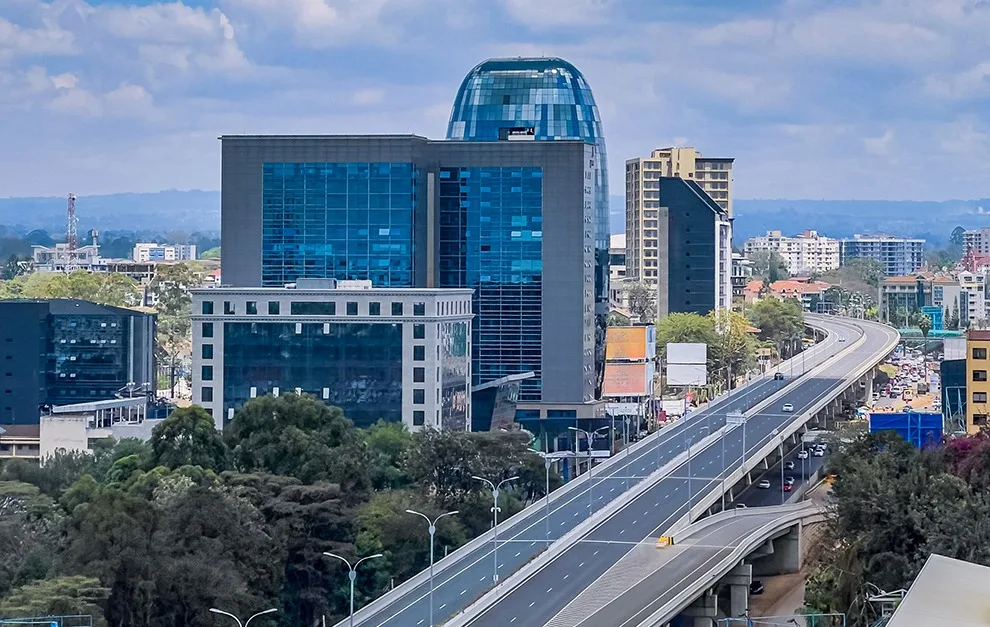Top 5 Real Estate Trends for 2025 In Kenya

As 2025 progresses, the Kenyan real estate market is showing significant signs of transformation driven by factors such as significant technological advancements and evolving buyer tastes. Whatever side of the investor spectrum you’re on, experienced or not, being aware of these trends can help you stay ahead of the curve. Below are five major Kenyan real estate trends of 2025 and how they are shaping the future of property homeownership and investment.
Affordable Housing Meeting Real Estate Demand In Kenya
One of Kenya’s most urgent and lucrative real estate trends in 2025 remains to be affordable housing. There is a clear demand for units priced between KES 1 to KES 6 million. However, the demand is not by mere chance. It is supported by a growing middle class, soaring urbanization, and government initiatives under the Affordable Housing Programme.
Additionally, flexible financing options such as the rent-to-own model have made owning these homes easily accessible. For investors, affordable housing offers high demand, stable occupancy, and lower risk, especially in areas with infrastructure growth or access to economic zones.
Digital Innovations Revolutionizing Real Estate Transactions in Kenya
The real estate industry in Kenya is undergoing a digital transformation. In 2025, the use of property technology (PropTech) is not just enhancing the buying and selling process, it’s completely redefining the experience for agents, developers, investors and homeowners. Below are key digital real estate trends and PropTech innovations shaping Kenya’s property market:
- Virtual Site Visits and 3D Walkthroughs: Travelling to view property is slowly becoming a thing of the past. Developers and agents are adopting 360-degree virtual tours and augmented reality (AR) to showcase property online. This is especially popular with diaspora investors, who are typically unable to make physical site visits. This technology enables them to make decisions remotely.
- Digital Land Registries: Title deeds, leaseholds, and land records are still being digitized by Kenya’s Ministry of Lands. Buyers and lawyers can access ownership records and perform due diligence online through the Ardhisasa platform and e-Citizen portal. These platforms have been pivotal in reducing land fraud and delays.
- Prop-Tech Driven Property Management: Landlords and property managers in Kenya are embracing apps that automate rent collection, utility billing, maintenance requests, and tenant communication. This has greatly helped streamline service provision and communication for landlords and their tenants.
- AI-Powered Property Matchmaking: With digital real estate, finding the perfect property is no longer a hassle. AI algorithms are being introduced by PropTech companies to match buyers with houses according to criteria such as location, lifestyle preferences, budget, and even financial eligibility.
- Blockchain Technology: Though still relatively new, blockchain technology is being explored and tested for land title verification and fractional ownership in Kenya. This technology promises tamper-proof land registration and transparent transactions.
The Rise Of Satellite Towns As Real Estate Investment Hotspots In Kenya
The quick development of satellite towns around large cities like Nairobi, Mombasa, and Kisumu is one of the most important real estate trends in Kenya for 2025. Developers and homebuyers are gearing towards cheaper, easily accessible, and quickly urbanizing periphery areas as land and housing costs in the city’s centre continue to soar. Here are a few reasons why satellite towns are part of Kenya’s real estate boom:
- Improved Infrastructure: Once-distant suburbs are becoming thriving residential and commercial centers thanks to massive infrastructure initiatives like the Nairobi Expressway and the dualling of Mombasa Road. The CBD is now easily accessible from towns like Syokimau, Ruiru, Athi River, Kitengela, Joska, Thika, and Ngong.
- Lower Land Prices: Land in outlying towns is still far less expensive than in Nairobi’s central regions, which appeals to both large-scale developers and speculative investors.
- County Governments Supporting Real Estate Growth: To entice investors, numerous county governments are offering incentives, expedited permits, and development-friendly legislation. Local governments and developers are working together to build integrated townships and master-planned communities in Machakos, Kiambu, and Kajiado.
Sustainable Real Estate Gaining Momentum In Kenya
Sustainable real estate practices have become a necessary component in the sector. With growing awareness around climate change, comes a growing demand for sustainable and eco-friendly properties. Developers are increasingly incorporating green building technologies, such as solar panels, rainwater harvesting systems, and energy-efficient designs, to minimize environmental impact.
Governments are also contributing their share to green real estate by incentivizing eco-friendly developments. This move has helped make them an even more profitable venture for investors. Those who are quick to embrace green real estate practices early are sure to gain significant competitive advantage in future.
AI-Integrated Living Redefining Real Estate In Kenya
The world is rapidly shifting towards smart living and Kenya is not being left behind. Developers in high-end areas such as Karen are introducing homes with AI-driven security, lighting, and energy management systems. This integration of smart technologies that anticipate the resident’s every need could mean long-term appreciation and rental demand in future.
Final Thoughts
The Kenyan real estate market in 2025 offers exciting opportunities for everyone involved. By keeping an eye on emergent locations, government-driven real estate initiatives, smart technology, green living, and digital innovation coupled with working with experienced professionals you can make better and more profitable property decisions this year.